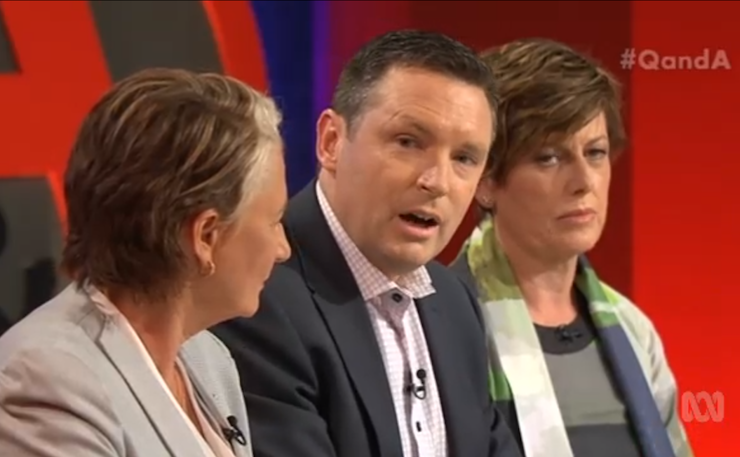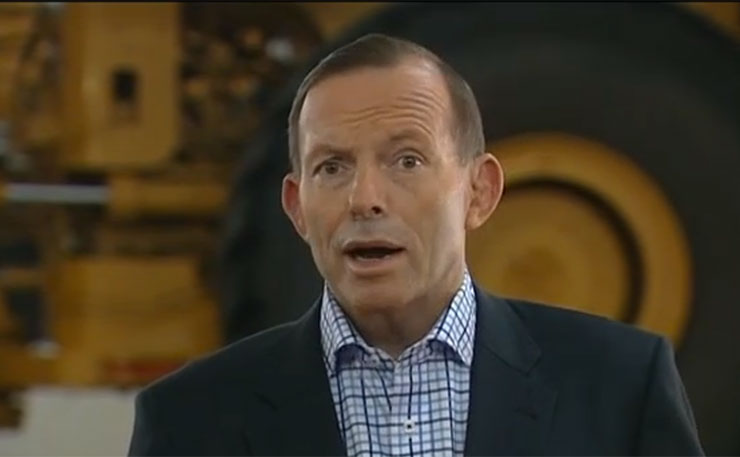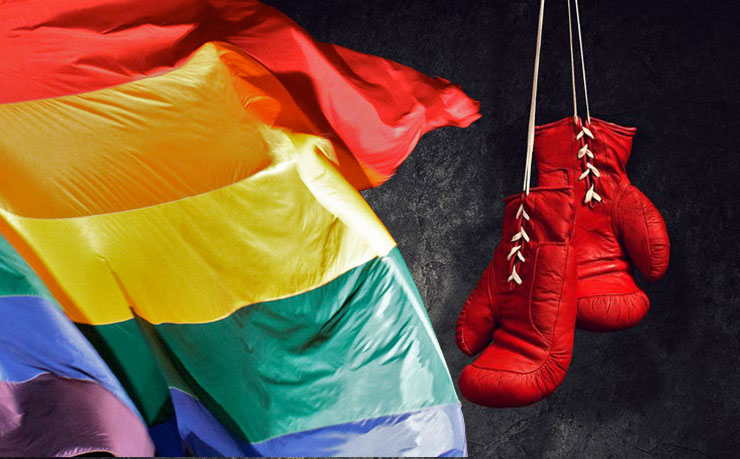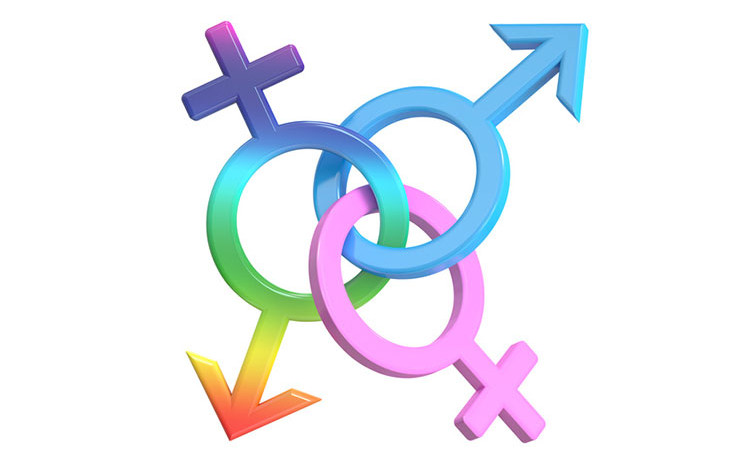The debate over same-sex marriage has an elephant in the room, and watching the No campaign ignore he/she/they is an impressive thing to behold. Tim Deane Freeman explains.
“Lyle Shelton is right,” ranks highly among utterances I never thought would escape my lips. But politics has a belligerent tendency of getting out from under our sensible expectations and racing off to dark new horizons. I never thought I’d be saying things like “Senator Derryn Hinch,” or “President Donald Trump” either, but here we are.
My accord with Shelton is perhaps strangest of all, given that, as somebody who studies and teaches philosophy, I have an abiding interest in ideas of reason, emancipation and human dignity. The conceptual space instigated by this triumvirate is, I would contend, perhaps not Shelton’s habitat.
But when Shelton – the former Toowoomba City Councillor who failed in his bid to be elected to the Queensland state legislature as a National – finally found his proper place as Managing Director of the Australian Christian Lobby, he began to verge worryingly on lucidity.
Yes, there was the horrific moment (or moments) when he offended with impressive breadth by referring to the children of same-sex couples as a “stolen generation”. Yes, he supports the archaic, thoroughly discredited pseudoscience of “conversion therapy;” the barbarous and ineffectual process of “reprogramming” LGBTI+ people into straightness. Yes, he represents an anachronistic throwback to cruel, dull 1950s Australia, envisaged as “utopia” by the clutch of white, relatively well-off men for whom it indeed was.
On all of these counts he demonstrates an admirable capacity for wrongness.

But what he does correctly annunciate, again and again, with vitriol and prescience, is the fact that the debate on marriage equality currently raging in Australian public life is most certainly about gender.
“It is about forever changing our understanding of gender which we are seeing in the Safe Schools program…” he said, in a characteristic interview with Sky News last month “…this has nothing to do with marriage. It is about forever changing the way children are understanding what it means to be a boy and a girl.”
He’s dead right.
Not about safe-schools, of course. That completely benign anti-bullying campaign is, according to pedagogical experts and coal-face educators alike, as requisite and effective as it was (initially) uncontroversial.
But Shelton’s diagnosis, that gayness and gender politics are fundamentally entwined – part of the ‘No’ campaign’s brutally effective “muddy the waters” strategy to obscure the largely uncontroversial question of equal marriage itself – gestures towards the fundamental forces at play in this debate.
The fact is that, despite their official claims, those who support the “no” campaign aren’t arguing for the preservation of an institution they feel is sacred, special or deserving of protection. Their relative indifference to heterosexual “sins” like divorce and pre-marital relations constitutes a deafening silence. Their arguments emerge entirely from the firm belief that homosexuality, gender fluidity and non-binary identification are aberrant, disgusting and morally nefarious.
Even in its most palatable, media-savvy and ‘tolerant’ guises – the likes of Shelton or of Tony Abbott – the ‘no’ campaign barely manages to mask a medieval contempt for behaviours which fail to accord to their own miniscule parameters of acceptability.

How else are we to read remarks like the following, taken from Shelton’s blog post of June 1st, 2016?
“Changing the definition of marriage to entrench motherlessness and fatherlessness in public policy and teaching our kids their gender is fluid should be opposed. The cowardice and weakness of Australia’s ‘gatekeepers’ is causing unthinkable things to happen, just as unthinkable things happened in Germany in the 1930s.”
Shelton’s dog-whistled parallel between gender fluidity and the Holocaust shows an impressive lack of historical acumen. It’s worth noting on just which side of this contorted analogy the gender fluid or same-sex attracted citizens of 1930s Germany resided.
It also demonstrates the importance of the question of gender to those who oppose same-sex marriage. Its constant evocation by the ‘No’ campaign, reaching a significance here comparable to that of the Nazi Holocaust, should be correctly understood as reflecting their fundamental investments in the debate.
These people are only peripherally concerned with the religious institution of marriage. The motivating factor, and the reason their scare campaigns have any bite, is a profound popular fear of sexual difference.
The ACL’s literature (if you can actually find it on their labyrinthine and allusive site) is as slavishly obsessed with heteronormativity as it is un-proofread:
“Safe Schools, and similar extreme LGBT sex education programs, teach children to accept the conclusions of queer theory; that biological sex cannot be understood as male/female; that sexual diversity and gender diversity are a natural part of each individual’s true identity; that diversity in all its forms must be affirmed and celebrated. Safe schools and marriage [presumably the redefinition thereof]work together to eradicate the idea that distinctions between male and female have any significance, or that heterosexuality, bisexuality can be distinguished from heterosexuality (sic).”
Aside from the syntactic and word-choice problems, I’m inclined to say “bravo!”
If perhaps a little simplistic, this sounds like a generous, worthwhile political programmatic. If only Safe Schools actually sought to make such bold and sweeping ideological commitments.
What’s telling is the fact that the ACL feels no need to offer any normative commentary on these ideas, simply relating them without any real critique, as though they were their own refutation.

The question of what, exactly, is wrong with the affirmation or celebration of diversity remains largely unaddressed. It’s also a prickly one, given that Shelton, like others on the PR end of the campaign, are at pains to stress that their issue is not with gays and lesbians per se, but with attempts to redefine straight institutions (otherwise known as “institutions”).
Their persistent mantra is to evoke the thoroughly discredited argument that same-sex families are somehow less “successful” at raising well-rounded, happy children, an argument which jostles uncomfortably with ACL support for that other well-known bastion for the protection of children, education by the religious orders.
The point is that their literature – which will leave anybody trained in assessing undergraduate argumentation aghast – doesn’t need to make sense. They don’t need to make cogent arguments, because everything upon which their campaign rests is said between the lines.
The grist of their position, and the reason they feel no need to formulate it in persuasive terms, is a profound cultural fear of same-sex attraction and gender fluidity, which they exploit with virtuosity. The Liberal Party’s costly outsourcing of internal politics to Australia Post and to the Australian people has afforded them a unique opportunity to attack exactly those people they, like many Australians, have long lived to hate, those who do not accord to a rigorously heteronormative performance of identity.
On the other side, the director of the ‘Australians for Equality’ campaign Tiernan Brady exemplifies the official ‘Yes’ line, rejecting repeated conflations of marriage equality with gender politics, and claiming:
“The people behind this… know that the Australian people are for allowing all Australians the right to marry so they desperately pretend this simple straightforward question is about something else…”
His position is determined by the exigencies of a narrow, stilted debate, in which the ‘Yes’ side must present a small and uncontroversial target. But he’s wrong.
We need to be sure that we understand, explicitly or implicitly, depending on the context of our interventions, that this is not a debate simply about marriage. It is a debate about the way in which we understand human difference. For LGBTQI+ Australians, regardless of how they might feel about the trifling question of marriage itself, it is an existential debate, one in which, as so often, reactionary and repressive forces are allowed to aggressively question their very modes of being.
The constant, reactionary evocation of ‘gender fluidity’ exemplifies the profound sense in which this debate is not at all about a legal technicality, but about the way in which people are permitted to live their lives, perform their genders and experience their sexualities.
For Shelton and his ilk, this is only ever in ways that are rigorously heteronormative, to the exclusion of any genuine human diversity.
I have no illusions about what inveighing in this way can achieve. Anybody who has read this far is either a troll hoping to bulletproof their interjection, or somebody who is already convinced. The stilted, voluntary character of this debate means that minds are already made up.
I do hope, however, to enrich debate on my own side of this schism.
We need to make sure that when posting both the forms and the inevitable photographs of them, we are aware that we are participating not simply in the debate over a tawdry and outdated institution. We are involved, for an all-too-fleeting moment, in the struggle over how we believe gender and sexuality should be expressed and understood.
As Lyle Shelton rightly notes, we are fighting over what it means to be human.
Donate To New Matilda
New Matilda is a small, independent media outlet. We survive through reader contributions, and never losing a lawsuit. If you got something from this article, giving something back helps us to continue speaking truth to power. Every little bit counts.






